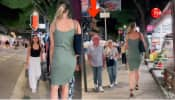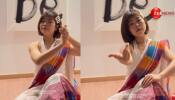Washington: Researchers have found that claims made about top-selling eye vitamins in the US lack concrete scientific evidence and these supplements could pose a risk to users.
They also discovered that some of the top-selling products do not contain identical ingredient dosages pertaining to eye vitamin formulas proven effective in clinical trials.
The findings established that of the 11 popular supplements analysed, seven do not adhere to proven formulas and all 11 have misleading claims.
"With so many vitamins out there claiming to support eye health, it is very easy for patients to be misled into buying supplements that may not bring about the desired results," said first study author Jennifer J. Yong from the Yale-New Haven Hospital-Waterbury Hospital in the US.
To test whether the products are consistent with the findings of the research, the researchers compared the ingredients in top-selling brands to the exact formulas proven effective by the landmark Age-Related Eye Disease Study (AREDS) and a second study AREDS2.
The researchers identified the five top-selling brands based on market research results collected from June 2011 to June 2012, and analysed 11 products.
They found that while all 11 products' promotional materials contained claims that the supplements "support," "protect", "help" or "promote" vision and eye health, none had statements specifying that nutritional supplements have only been proven effective in people with specific stages of age-related macular degeneration (AMD).
There were also no statements clarifying that currently there is not sufficient evidence to support the routine use of nutritional supplements for primary prevention of eye diseases such as AMD and cataracts.
"Our findings underscore the importance of opthalmologists educating patients that they should only take the proven combination of nutrients and doses for AMD according to guidelines established by previous studies," the authors said.
The AREDS formula, made up of high doses of vitamin C, vitamin E, beta-carotene and zinc, is patented by Bausch and Lomb.
The team of researchers were composed of experts from the Yale-New Haven Hospital-Waterbury Hospital, the Penn State College of Medicine, the Providence VA Medical Center and Brown University' Warren Alpert Medical School.
The results were published online in Ophthalmology, the journal of the American Academy of Ophthalmology.
















